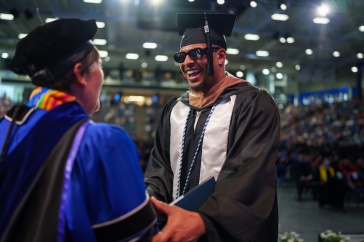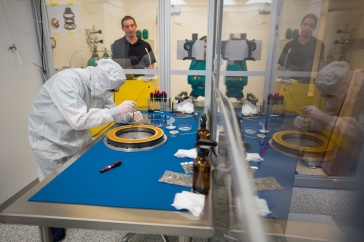
When tackling today’s social, business and technological problems, it’s not just about the skills you have, but how you?think. Employers want to hire problem-solvers who think critically and creatively, skills that make liberal arts students stand out in today’s job market. That’s why it's no surprise that 100% of UNH Manchester’s 2020 liberal arts grads were employed or enrolled in master’s programs within six months of graduation.
Join us on Zoom on December 7 at 5 p.m. for The Power of Liberal Arts, a panel discussion featuring successful alumni from various liberal arts majors. This virtual event showcases industry need for people who approach a challenge through the lens of its human context—something that liberal arts students are uniquely prepared to do.
The Power of Liberal Arts
Tuesday, December 7
5 - 6 p.m. via Zoom
RSVP here
The panel includes English alumna Rachel Avery ’20, English teaching alumna Meaghan Gardena ‘19 and humanities alumna Dorren Ford ’21.?
“Studying the liberal arts has equipped me with the kinds of skills that continue to grow in demand across professional sectors: writing, analysis, clarity in communication and the ability to synthesize,” says Avery, who works at the Minnesota Homeownership Center in St. Paul, Minn. “As a nonprofit professional, I’m continually glad to have a rigorous background in literature and history because my experiences and knowledge are versatile.”
A liberal arts education prepares students with skills that are in high demand across all industries, including critical thinking, analytical reasoning, problem solving, teamwork, strong communication and ethical judgment. Gardena, who works as an adjunct instructor and writing tutor at NHTI, says these skills are valuable both professionally and personally.
“Everything I gained in my liberal arts education has been transferable?to my life after graduation. The language register I have learned to use helps me communicate with precision and, when needed, variety,” Gardena says. “I also have a breadth of background?knowledge on which I can build further learning or recall to better understand a situation or piece of information. My education prepared me for a successful professional life but also an enriching personal one.”
Ford, who is pursuing a master’s degree in philosophy, echoes that sentiment.
“My liberal arts degree made me more confident in my own abilities to both learn and help others learn which has helped me better understand the world around me and myself in the process,” Ford says.
Be inspired by these alums and others in the liberal arts fields at our virtual The Power of Liberal Arts event on December 7 at 5 p.m.
?



















































